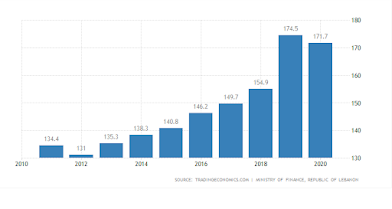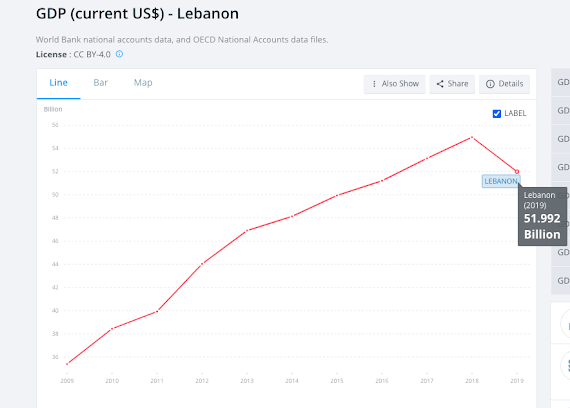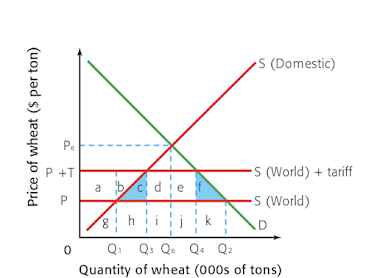Lebanon's Fiscal Policies and Debt
Lebanon has been ongoing a bad financial crisis. The country has been in deep debt for many years all due to decisions the government's made. Lebanon's financial struggles start with the reconstruction that the country needed after the civil war, despite being promised in conferences that they would have some financial assistance with rebuilding, Lebanon still hasn't been able to get back the fiscal stability that they once had beforehand. What also arose because of this crisis were many protests by Lebanese citizens, around the same time in October 2019. The citizens were protesting the list of reforms that the Prime Minister was intending to implement at the time.
In terms of their fiscals policies in relation to their ongoing financial crisis, their policies "are producing large-scale debt and inequality", and they've had many issues with their internal fiscal policies as well (Baumann). According to the World Bank, Lebanon's currently experiencing "a severe, prolonged economic depression." Their inflation has started to reach triple digits already, while poverty is continuing to rise with the exchange rate also losing it's value. This is all also during COVID-19, which has caused the already barely functioning healthcare system to become even more pressured. Taking into account all that Lebanon has and is experiencing, there's one more large incident which has really taken a toll on Lebanon as a country: the Port of Beirut explosion, which "had implications at the national level" (World Bank).
In terms of fiscal policies/measures that have been implemented in Lebanon, there are two that seem unreasonable. In October 2019, the government decided to implement a daily fee on phone calls. The fee is 20 cents and it's on many popular apps, one being Whatsapp which is used majorly in Lebanon. Also, the government has decided to increase the value added tax (VAT) from 11 percent to 15 percent by 2022, which led to the protests against the corrupt government that's been targeting the poorer population of Lebanon for years, and creating a divide between the Lebanese people. In addition to this there were many reforms that occurred post-war, like the first implementation of the VAT, taxes on the capital, taxes on interest earnings and taxes on capital gains. These were all pushed forward by the government (Bifani, et al).
Two different measures of Lebanon's Debt as a % of GDP
(2010 to 2020)
“Overview.” World Bank, www.worldbank.org/en/country/lebanon/overview.
Lucke, Bernd, et al. “Assessing Economic and Fiscal Reforms in Lebanon: A Dynamic CGE Analysis with Debt Constraints.” Emerging Markets Finance & Trade, vol. 43, no. 1, 2007, pp 35–63. JSTOR, www.jstor.org/stable/27750532. Accessed 7 Sept. 2021.
“Lebanon Government Debt: % of GDP.” Lebanon Government Debt: % of GDP, 1998 – 2021 | CEIC Data, www.ceicdata.com/en/indicator/lebanon/government-debt--of-nominal-gdp.




What are the government's tax increases intended to do? Who is arguing for them, and who against?
ReplyDelete